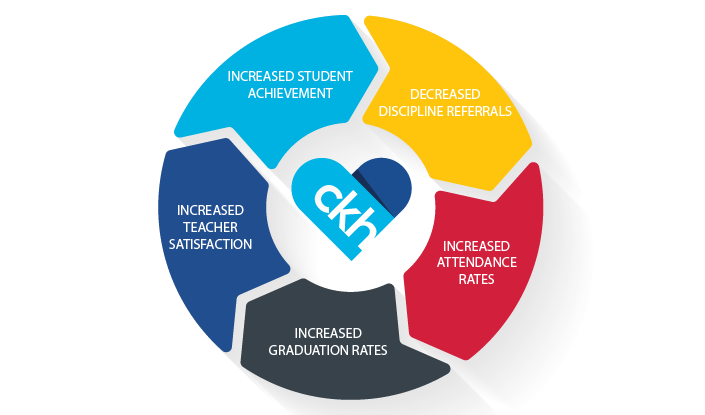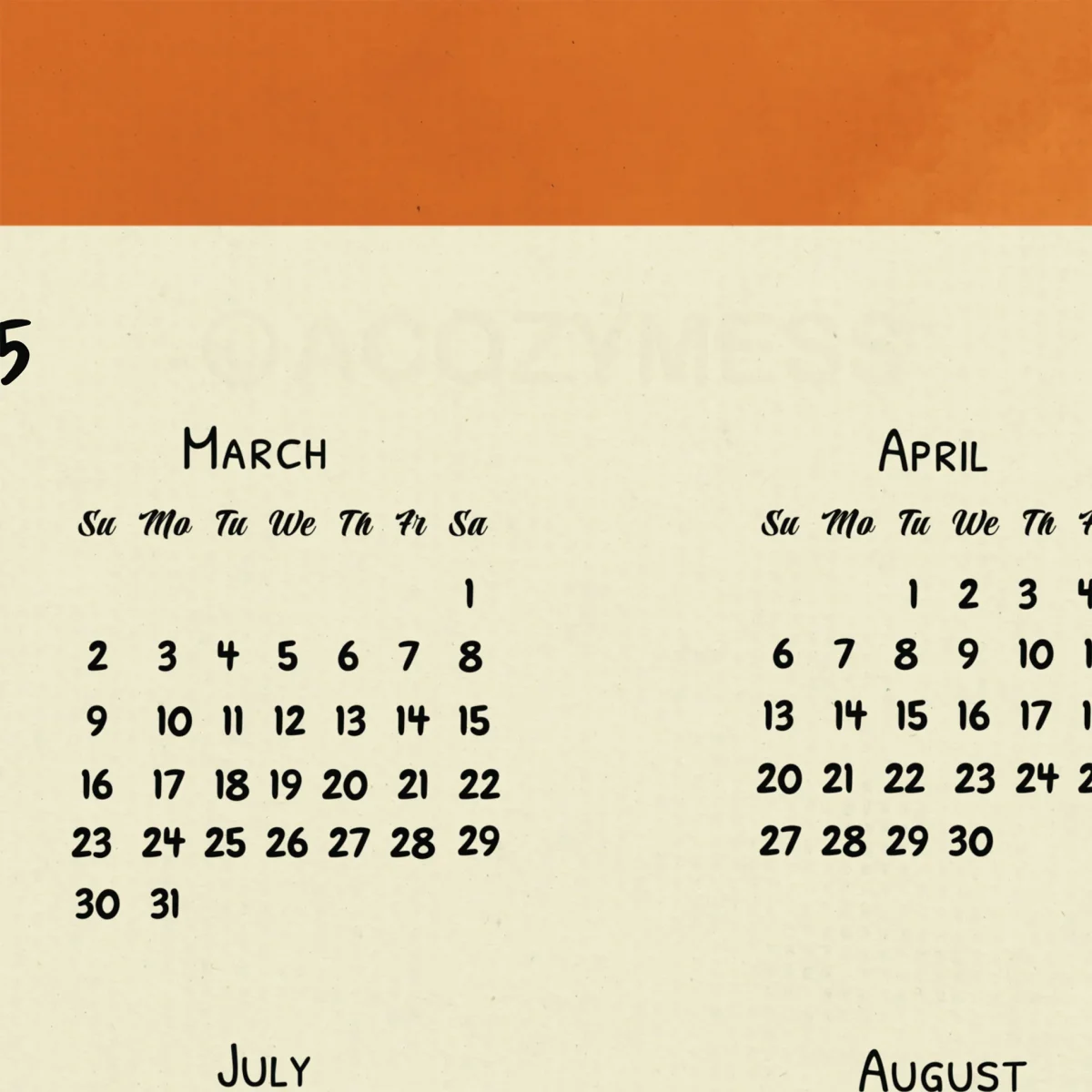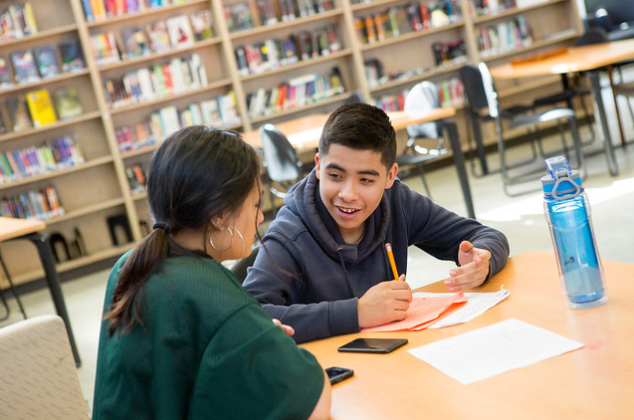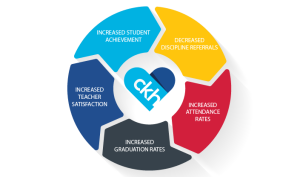Haste Makes Waste:
How to Study Effectively
September 23, 2019
“New year, new me,” right? The end of summer break comes with shopping for back-to-school supplies, figuring out where to go for classes, and preparing to wake up at the crack of dawn As the next school year begins, students are coming up with goals for another two semesters of homework and grades.
It’s a stressful and exciting time, but it’s also a great opportunity to try new techniques. It may be a new organization system for your classes, or a promise to get homework completed every day. The first month is a whir of productivity and commitment, but sometimes, it can be hard to keep that up.
Determination sometimes starts to wear thin as the year goes on, making it harder to succeed in school. It can be very discouraging to receive a bad grade on a test, especially if you thought you did well. What if the issue was with the way you study?
As painful as it sounds, studying is the key to success in school. If you don’t already have a system that works for you, it may be harder to have your grades reflect your goals. It’s never too late—or too early—to create one. Here are 20 tips to add to your toolbelt:
1. Write, Don’t Type
As chromebooks are assimilated more and more into classrooms, digital notes become increasingly popular. For most, it’s faster to type. You can access everything in one place. However, you’re more likely to remember the information you write.
The act itself gets your brain focusing on the letters, so you associate a meaning behind every symbol. When you type, it’s easier to tune out than when you write because you have to focus on creating the right shape. On top of that, if you can’t write fast enough to get it word-for-word, you’re going to paraphrase and put the information in your own words. This way, you aren’t mindlessly copying facts, you’re interacting with them.
After you’ve studied a few times, try going through the information mentally rather than just rereading your notes. This way, you establish what you know and learn where you may be missing some key concepts.
2. Write Down Your Test Date As Soon as Possible
How many times has a test snuck up on you? One you meant to write down, and then never did. The human brain forgets—don’t let it be your downfall. Avoid this nightmare by adding test dates to a calendar, or in a notepad, that you’ll look at daily. Knowing what you need to prioritize and when an influential grade is coming up is invaluable.
3. Study A Week or a Few Days Before the Test
While cramming might seem like it works, it isn’t the most effective method of learning and retaining knowledge. It makes sense. The information is coming to you just before the test, so it’s all fresh in your mind. But, when you try to force in knowledge from a big chunk of material in one night, all of it can start to blur together. You may skip important details or completely lose some in the mess of it all.
A week may seem like a lot of time to prepare for a test, especially if you already know the content very well, but you never know. Maybe there was a formula you forgot or a section of the textbook you skipped.
Either way, studying in intervals as small as 10 minutes per day over some time may be better than trying to do it the night before and skip something.
4. Schedule Study Time
If you studied for hours a night, you would quickly burn out before the year ended. You need a way to get in all of the information without exhausting yourself. The easiest way to do that is to use a calendar to plan your days leading up to tests.
It may even help to study before your homework. Homework is a big priority, but studying before you do that can help you with the work. It ensures that you don’t push off studying for another time after working on that assignment.
5. Figure Out What the Test Will Cover
That’s easy, it’s just everything we learned, right? Well, maybe, but sometimes there’s too much in one unit to be on a test. This problem pops up a lot in history classes. When there’s such a vast amount of content, it can all blend, and you may forget on the big day.
Your teacher may tell you beforehand what concepts are covered, or you may need to ask. Either way, it saves a lot of time and energy by focusing on the key ideas rather than all the little details.
6. Break it Up
If you have an entire unit of factoring or a century jam-packed with wars and chaos to study before a particular date, you’ll need to decide what parts to do at a time. For instance, separate the key concepts and the smaller details.
If you’ve got an essay, it’s more beneficial to focus on the big picture. If it’s multiple-choice, specific facts are most likely going to be relevant.
7. Study Multiple Subjects at a Time
If you have tests in several classes coming up, don’t try to do one a day and alternate. If you get excessively bored or reach a block in your studying, switching to a new subject can give your brain a break and some time to regroup before you return to it.
8. Find a Study Partner or Group
Having another person to study with can give all participants a chance to grow off of each other. Comparing notes and asking questions can get you through anything you may not understand. You can quiz each other or help create study tools.
9. Use the Study Guide
It’s there for a reason. It tells you what will be on the test, what you need to work on, and gives you valuable practice time. On the first run, answer every question you know, and look up the ones you couldn’t in your notes. This way, you get an understanding of what you do and don’t know.
If you still feel unsure about the content after completing it, you can get another blank copy and fill it out. But this time, try not to use your notes. The closer you get towards being able to answer every question without sneaking a look at your notes, the more you’ll understand the concept. You can even answer them in a random order to keep you from remembering the answer. This repeated practice gets you closer to mastery of the topic.
If you’re not as lucky, there won’t be any guide. You could try to build your own by creating questions you think will be on the test (ask friends in your class to help you create one so that there’s a variety of problems to practice).
10. Create Your Own Study Tools
Flashcards, questions, anagrams, acronyms, songs, and images galore. Anything that reminds you of the content is an exceptional tool for remembering the specific details. For example, there are the famous phrases like “SOH CAH TOA” and “The mitochondria is the powerhouse of the cell,” that have ingrained themselves in the minds of teens forever.
I once passed a test I hardly studied for in middle school band by creating weird connections between book characters and composers. If you make it and can retain it, it’ll stick. Sometimes the crazier ones that make no sense will stay with you longer.
11. Reward Yourself While Working
If you’re studying, you should be proud of yourself. You’re working towards success. However, the payback of a good grade is too far away to be immediately rewarding. Little things like a sweet after 10 minutes of notes or five minutes of the internet after a certain amount of problems can get you through what may seem like an eternity.
12. Cut Out Distractions
It’s incredibly easy to give in to that new YouTube video or text. If you pick up your phone to check, it creates a downward spiral that leads to having no work completed. I’m in some group chats, and occasionally, they explode. But, you can’t let that distract you, and it’s crucial to stay focused. Make your phone a reward and silence it before you commit to a productive mindset.
If checking your phone is inevitable, place it out of reach. Have a sibling or parent hide it, or just put it in another room. As long as it’s out of sight, it can eventually be out of mind.
13. If Needed, Use an App
If you’re still having difficulty keeping the phone away, even on silent, you may need some help. There are apps you can download for free that will block notifications, internet, and apps on your phone for a designated time.
If your problem is having a planner and consistently using it, there are homework and test trackers that can keep you organized. The difference here is that they use reminders and you can add a new assignment quickly as you’re browsing on your phone.
14. Drink Coffee or Tea
Energy. It’s needed to focus and keep your brain running most effectively. It can be tiring to stare at words and numbers for long periods. Maybe you didn’t get a lot of sleep that night. Whatever the reason is, a caffeinated drink may be just the thing to kick you back in shape for learning.
15. Change Your Scenery
Having a new place to surround you, even if it’s just moving from one part of your house to the other, can stimulate you. You could get out of the house and go to a library or cafe. Your brain associates your location with the study material. When you go to take the test, you’re no longer in that non-stressful environment.
Moving around keeps you from getting too bored and motivates the brain. The more attentive you are, the easier it will be to get in that productive mood. It even helps your memory as you are more alert and focused on the material.
16. Review the Day-Of, But Don’t go Overboard
You want to have the information fresh in your mind, but you don’t want to be frantically studying material and shoving in as much as you can. It can build up nervousness as all the facts blend.
Instead, try to go light on the studying, but focus more on reviewing inside your head. It will establish what you know and put you in the right mindset before you sit down to take the test.
17. Don’t Think or Talk Negatively
It may seem obvious, but you see it in classes all the time. Passing phrases like “I’m so nervous about this test” and “I don’t know if I studied enough” fly around minutes before the time comes. It may seem relaxing to relate to others about stress, but the negative thoughts don’t do much for confidence.
Stress is inevitable, but you can reduce that with positive thoughts. Breathe in. Breathe out. You know the content, and worrying about something you can no longer change isn’t going to help you pass the test.
18. Brainstorm Before and On the Test
This one may or may not be valuable, and it depends on the type of test you’re taking. If it’s an essay, plan it out, or jot down ideas so you can have some momentum with your writing. It can also help you from getting stuck with a thesis you can’t support.
If it’s a math test with a ton of formulas or patterns, quickly writing them down on your paper before you begin can keep you from panicking and drawing a blank.
19. Ignore People Who Finish Around You On Test Day
It’s remarkably hard to do this. You don’t want to be the last person to finish, and you don’t want to be the first to get up. But now is the time to focus on yourself. Check, double-check, and triple-check your work if you have to (but don’t change all of your answers, your gut response is usually right). Why rush and make a silly mistake?
20. Learn What Works For You
Maybe you liked all 20 of these, possibly none. There’s also a vast expanse of YouTube videos and articles to inspire your routine. The internet is full of opinions and tips, but forcing one trick to work isn’t the key. Figure out what you prefer and what gets you to your goal.
So welcome back Legacy Lightning, and hello to new students. If you work hard throughout the year, you will see the results. High school is a crazy place and the perfect environment for stress. This year, continue to experiment and grow. Make the best of what is sure to be an insane few months.
If you want to read more tips, or find more details, click here. It was an engaging and detailed article with some fantastic suggestions.









































